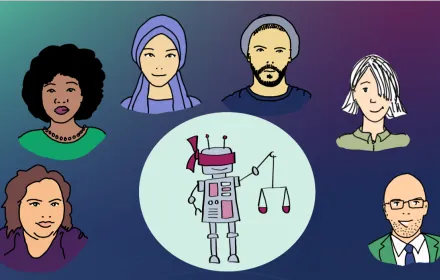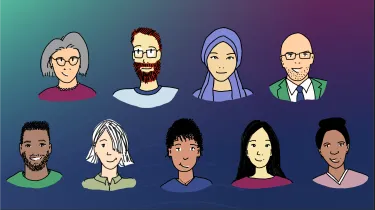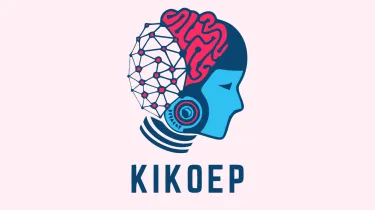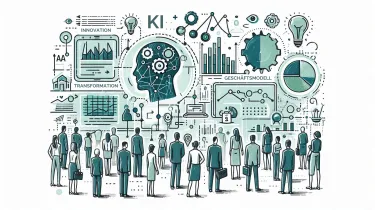Methods of Bias Reduction for Socially Responsible AI Design
In this course, you will learn about proven de-biasing methods. These include both very specific practices that are effective at product level, as well as holistic methods that sustainably prevent biases at the process or organisational level. These scientifically validated methods are already being used successfully in many areas to ensure that AI systems are not only technically proficient, but also socially responsible and fair.
Through practical examples and short exercises, you will acquire a toolkit in this course enabling you to actively and responsibly shape and use AI systems—and thus ensure that they comply with the principles of fairness, transparency, and inclusivity.

Overview
In our course series on socially responsible AI design, this learning unit focuses specifically on methods and practices for reducing bias in the development and use of AI. This means you will get to know methodological tools that enable you to identify and avoid stereotypical distortions, unfair or discriminatory content and procedures.
Most people want to behave fairly, responsibly and justly. However, they often do not know exactly which specific approaches they can use to design and use AI in a way that matches these values. So how can we identify and reduce biases, that is, stereotypical distortions?
In this course, you will become familiar with proven debiasing methods. These include both highly specific practices, which are effective at the product level, and holistic methods that sustainably prevent biases at the process or organisational level. These scientifically grounded methods are already being successfully deployed in many areas to ensure that AI systems are not only technically efficient but also socially responsible and fair.
Through practical examples and small exercises, this course will equip you with a toolbox that enables you to actively and responsibly help shape and use AI systems—and thus ensure that they conform to the principles of fairness, transparency and inclusivity.
What content can I expect?
- Diversity Personas – Development of diverse and bias-free user profiles in the design of AI technologies
- De-biasing through Prompting – Identification and reduction of biases in the use of generative AI
- Role Models – Strengthening the visibility of local role models to reduce biases in organisational structures and processes
- Shaping AI – together and iteratively – Counteracting biases holistically, reflectively and sustainably within organisations
What will I achieve?
By the end of the course you will be able to
- generate examples of possible biases and develop targeted solutions.
- name the scientific background of the various methods of bias reduction, which result in socially responsible AI design.
- identify the relevant areas within your organisation that can be optimised by means of bias reduction methods.
- implement the various practices independently in everyday business operations step by step.
What requirements do I need?
No specific prerequisites are required. The courses “Socially Responsible AI Design” and “Team Practices for Socially Responsible AI Design” are optional.
Who offers this course?
Prof. Dr Nicola Marsden, together with her team at the Socioinformatics Lab, works on national and international research projects focused on the development and implementation of participatory and user-centred methods for designing AI and fair digitalisation.
She is actively involved in various roles promoting diversity in STEM, for example as Deputy Chair of the Competence Centre Technology – Diversity – Equal Opportunities or as an expert for the German UNESCO Commission on the topic “AI as an Opportunity for Greater Gender Equality”.













